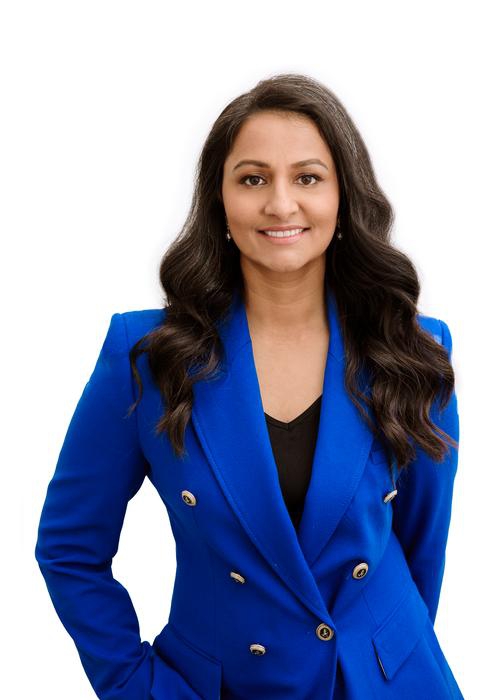
For workers who rely on their physical abilities, a serious shoulder injury isn’t just painful—it’s career-ending. But proving that in court? That’s where things get tricky.
At Kode Law, Seattle personal injury attorney Preet Kode helps injured workers present clear, compelling evidence of the long-term economic toll a shoulder injury can take. If your career came to a halt after one moment of trauma, you deserve full compensation—not just for medical bills, but for your future.
Why Are Shoulder Injuries So Career-Limiting?
Your shoulder is one of the most complex joints in your body. Even a "mild" tear or dislocation can limit your range of motion, reduce your strength, or make repetitive tasks intolerable.
Here are just a few examples of jobs that can be impossible to continue after a serious shoulder injury:
- Construction workers. Lifting heavy tools or materials overhead becomes challenging with even moderate shoulder dysfunction.
- Delivery drivers. Reaching across truck seats or lifting packages with precision requires full shoulder mobility and strength.
- Healthcare aides. Transferring patients or performing physical care can aggravate even well-treated injuries.
- Mechanics and electricians. Tasks that require holding tools overhead or in awkward positions become unsafe or unmanageable after many of the most common shoulder injuries.
- Warehouse workers and stockers. Constant lifting, stacking, and reaching above shoulder height can quickly worsen shoulder pain after a Seattle car accident.
- Professional cleaners and janitors. Scrubbing, mopping, and repetitive overhead motions are difficult or impossible with shoulder limitations.
- Landscapers and groundskeepers. Using power tools, carrying equipment, and managing repetitive arm movements can trigger chronic pain.
- Painters and drywall installers. Extended overhead work with rollers or heavy boards is often completely out of reach post-injury.
What Evidence Do You Need to Prove a Career-Ending Shoulder Injury?
To win a fair settlement or trial verdict, you need more than medical records. Courts and insurance companies want to see how your injury impacts your ability to earn a living. Key documentation may include:
- Orthopedic assessments. These reports detail your diagnosis, treatment history, and permanent restrictions. They also help establish whether your condition has reached maximum medical improvement (MMI), which is critical for calculating future losses.
- Imaging results. MRIs, CT scans, and X-rays serve as visual proof of structural damage to the shoulder. These can be useful for juries who may not understand medical terminology but can recognize a torn tendon or bone fragment on a scan.
- Rehabilitation records. These records show how hard you worked to recover. If your physical therapy plateaued or if exercises had to be discontinued due to pain or instability, it can help prove you’ve reached MMI.
- Testimony from treating providers. Statements or depositions from your physical therapist, orthopedic surgeon, or primary care doctor can reinforce how your injury has affected your strength, range of motion, and day-to-day function.
- Functional capacity evaluations (FCEs). These tests simulate job tasks and objectively assess your physical limits. The results of these tests provide measurable data that courts and insurers often rely on to determine work readiness or disability.
- Vocational expert testimony. These professionals explain why you can’t return to your previous job and what, if any, alternative work you're qualified to perform.
- Pain journal or symptom diary. Keeping a written or digital log of your daily pain levels, sleep disruptions, medication side effects, and physical limitations can demonstrate the real-life impact of your injury.
- Independent Medical Examination (IME). If there’s a dispute over the severity or cause of your injury, an IME from a neutral third-party specialist may help validate your diagnosis and clarify whether the injury is work-related or trauma-induced.
- Psychological evaluations. Chronic pain and job loss can trigger depression, anxiety, or PTSD—especially if your identity was tied to physical work. Mental health records can support claims for emotional distress damages and explain why you're not fit for retraining.
- Earnings and job history. Pay stubs, tax returns, and job descriptions help quantify your lost earning potential.
- Labor market surveys. A vocational expert may include a survey showing that jobs matching your skills and physical restrictions are rare or nonexistent in your area, which supports a claim for permanent total disability or higher damages.
Together, this evidence paints a picture of not just what happened—but what you've lost.
What If the Insurance Company Says You Can Still Work?
Because insurance companies don’t understand shoulder injuries, they often argue that you can find "lighter" work. But switching careers isn’t always feasible.
Injured workers often struggle to switch jobs when they:
- Have limited formal education or language barriers
- Are over 50 and face age discrimination in hiring
- Can’t sit at a desk all day due to other injuries
- Lack access to retraining or rehabilitation programs
A well-argued case includes vocational assessments that address these issues head-on. Courts are more likely to understand the true impact when they see the full picture instead of falling for the myths and misconceptions.
Why Legal Representation Benefits Your Shoulder Injury Claim
At Kode Law, we don’t just file claims. We build cases that reflect your real losses and fight for the compensation you deserve.
Here’s what we do for clients who’ve suffered shoulder injuries in Seattle car accidents:
- Connect you with top medical providers and vocational experts
- Document the full economic impact of your injury
- Negotiate assertively with insurers
- Prepare your case for trial if needed
You’ve already lost too much. Don’t let the legal system shortchange you.

